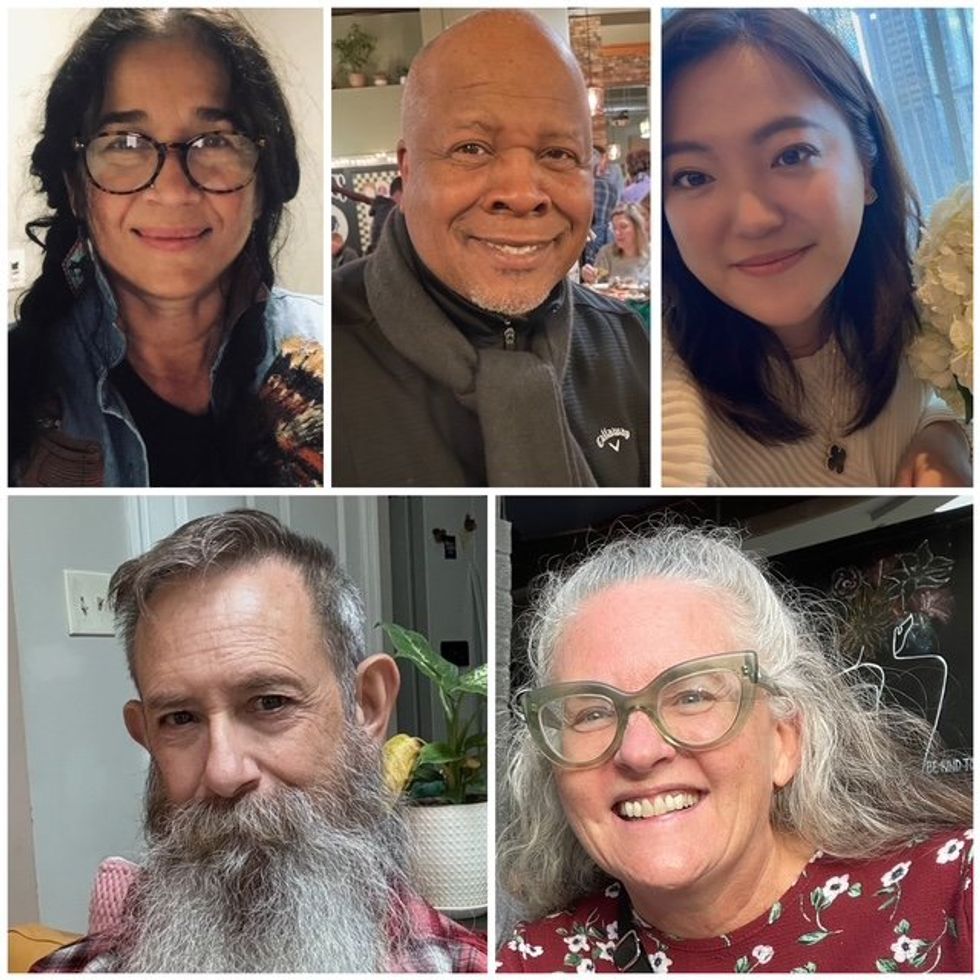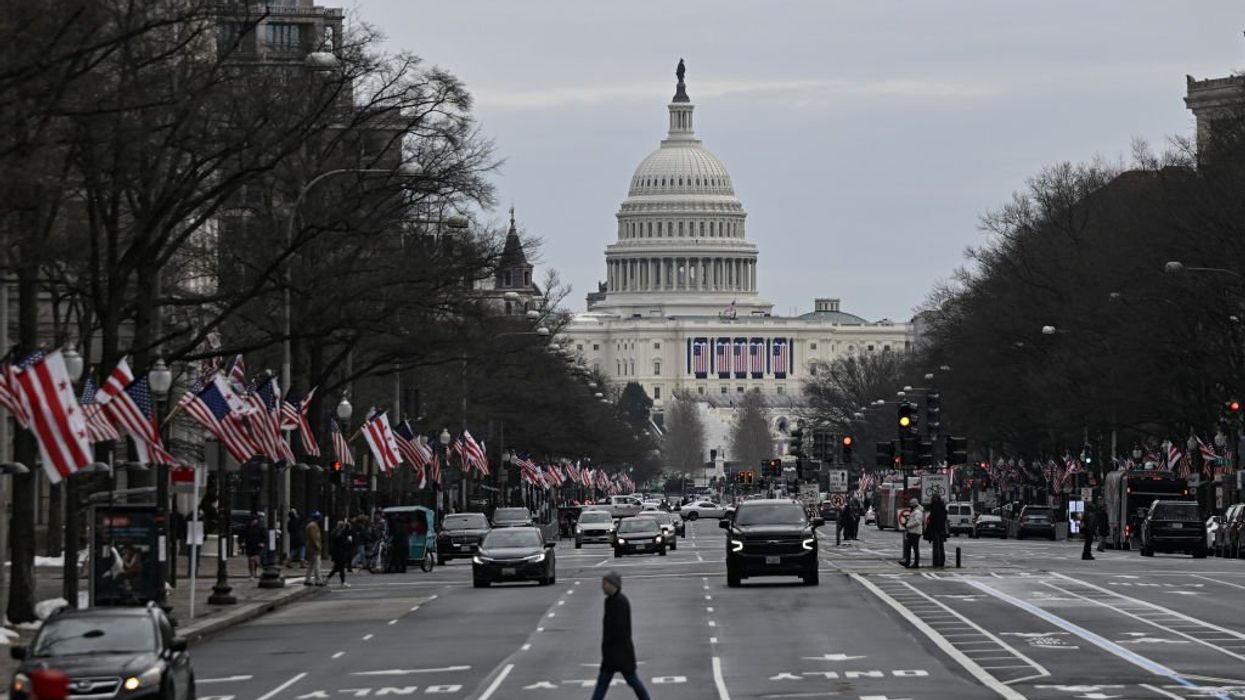This story is part of the We the People series, elevating the voices and visibility of the persons most affected by the decisions of elected officials. In this installment, we share the hopes and concerns of people as Donald Trump returns to the White House.
An Arctic blast is gripping the nation’s capital this Inauguration Day, which coincides with Martin Luther King Jr. Day. A rare occurrence since this federal holiday was instituted in 1983. Temperatures are in the single digits, and Donald J. Trump is taking the oath of office inside the Capitol Rotunda instead of being on the steps of the Capitol, making him less visible to his fans who traveled to Washington D.C. for this momentous occasion. What an emblematic scenario for such a unique political moment in history.
The country is experiencing a polar vortex, both literally and figuratively. Americans seem to be frozen in their perceptions of reality. Some are truly upbeat about the prospect of a second Trump presidency, while others are terrified and believe we are headed toward an autocratic regime.
Mikey Johnson, a caricature artist living in Virginia, is hopeful and excited about the next four years. From an economic standpoint, he believes everyone’s life will improve under President Trump. “I feel like the grown-up is finally in the White House, and he is going to do the things grown-ups do. People will be held responsible for criminal acts, and the border will be finally sealed off. Only people who apply legally will be able to come to America. This is, after all, a nation of immigrants.”
Asked whether President Trump could represent all Americans, Johnson said, “Absolutely, he wants to be everyone’s president. I have been listening to him since the first time he ran for president. You never hear anything derogatory towards any race. Even as a businessman, it did not matter the gender or the race of a person. He is a man who didn't have to run for president. He loves this country, has big plans and is for whatever is best for all Americans.”
Cathy Harmon Christian, Executive Director for Alternatives to the Death Penalty, is concerned about “the spoken and unspoken dehumanization of the most vulnerable.” The Atlanta, Georgia resident says there is a movement in the country to ostracize people who are transgender, immigrant, and incarcerated. “I believe that everyone belongs and that we are all interconnected. My experience has been that President Trump does not see the world the way that I do. He likes to pit one person against another.”
 (From left to right, beginning at the top) Patricia Gomez (WI), Reginald Robinson (DC), Vicky Chen (MA), Mikey Johnson (VA), Cathy Harmon Christian (GA)
(From left to right, beginning at the top) Patricia Gomez (WI), Reginald Robinson (DC), Vicky Chen (MA), Mikey Johnson (VA), Cathy Harmon Christian (GA)
Modern psychology tells us that our perspectives and worldviews are shaped by culture, our life experiences, and the context we live in. Where and how we consume information is also an important factor influencing how we think about the world. Social media algorithms, which determine what content appears as we scroll, have faced intense scrutiny recently for deepening America's political divide and reinforcing our ideological bubbles. This may, in part, explain the diametrically opposed views.
“As a mother of two boys in kindergarten, I feel America has changed, and not for the better. We are not as crime-free as before. I feel more confident and safer with Trump as president, and I know he will grow the economy,” says Vicky Chen, a restaurant owner in Boston, Massachusetts. Chen says that sexuality is a taboo topic in traditional Chinese culture, and she does not feel comfortable with LGBTQ ideas. “I don’t want that ideology to influence my children. President Trump said the term LGBTQ only stands for two words: male and female, and that works for me.”
But, concepts of safety and sexuality are subjective and rooted in lived experiences. Patricia Gomez, a bilingual teacher in a charter school in Wisconsin, is worried about the safety of her students. “As a Latina who works with underprivileged communities, I carry with me the history, culture, and resilience of these communities. I worry about the impact of mass deportations on the families I work with and on the economy.” “She admits that she cannot think beyond this month and wants “to bring more awareness to the parents I work with in case something drastic happens to them or to my students.”
Reginald Robinson, a distinguished law professor at Howard University, considers himself an outlier at his undergraduate alma mater, but stands firmly by his convictions. “President Trump plans to sunset the IRS and replace it with the external revenue service that deals with tariffs and trade. This will increase the country’s revenue and relieve us of an oppressive tax burden.” Robinson believes that since 1871, America has been run as a private corporation, not a constitutional republic. “Trump will return our country to the people. He will have four years of re-growing the prosperity of America for all of us.”
Many people nationwide feel vindicated that Trump got elected for a second term. Robinson, who believes that Trump overwhelmingly won the last election, says, “We have seen what happens when we push a narrative inconsistent with the desires of the majority of the country.” He blames legacy media for misleading us, especially around January 6. “People who participated in the so-called insurrection have been wasting away in prison.” While he supports holding individuals accountable for destroying public property, he urges President Trump to pardon the wrongfully convicted promptly.
Can we agree to disagree and simultaneously stay focused on our shared humanity? What Americans have in common may be surprisingly more than what separates us. After all, there is ample evidence that most Americans care about essential issues such as equitable access to quality health care, support of fundamental democratic principles, immigration reform, and stricter gun control measures. Those interviewed for this story share a genuine concern for family, community, and country.
When asked what he would tell a fellow American who's afraid of a second Trump presidency, Johnson said, “Give him [President Trump] the benefit of the doubt. Don’t be afraid unless he demonstrates a real reason to fear his presidency. Keep in mind that over half of the country voted for him, and they trust that he will do what’s best to lead us for the next four years,” says Johnson. “We don’t always get the candidate, or political party, that we want in office, but we all must try to relax and accept what is.”
Harmon Christian wants those who voted for Trump to “be sensitive and alert to vulnerable people and communities, especially if they lose their rights, representation and respect. Believe them when they say what’s happening to them.”
As an Indigenous woman from Colombia, Gomez says that First Nations people have a tradition of healing circles where individuals are invited to come together, transcend their differences, and connect as human beings, speaking from the heart.
Maybe it is not a coincidence that the second inauguration of President Trump overlaps with Dr. King’s Day. The message in these polarized times is to try and connect to each other from the heart. As Dr. King said during a sermon reproduced in his 1963 book Strength to Love, “Love is the greatest force in the universe. It is the heartbeat of the moral cosmos. He who loves is a participant in the being of God.”
Beatrice Spadacini is a freelance journalist who writes about social justice and public health.




















